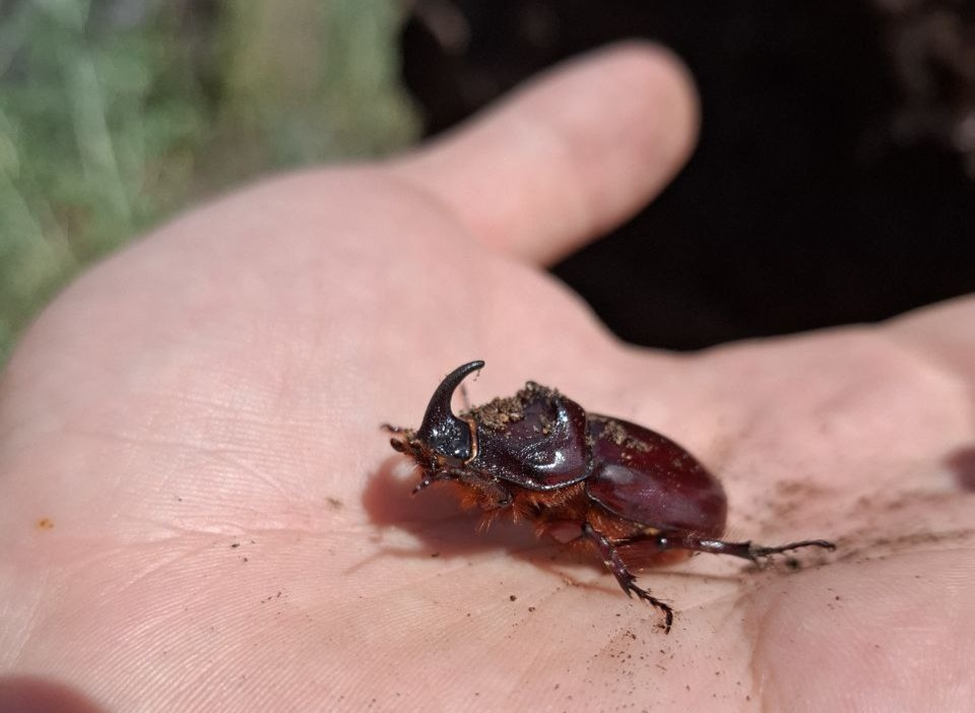
In agriculture, especially rice growing, huge volumes of straw are formed, which in moderate climates does not decompose for years. Currently, agricultural producers prefer to burn it, despite the legislative ban on such practice, the threat of fines and massive greenhouse gas emissions, rather than engage in recycling. A promising direction in this area is the search for species of soil invertebrates that are able to eat straw and integrate the carbon contained in it back into the soil, thereby increasing soil fertility.
Specialists from the A.N. Severtsov Institute of Ecology and Evolution of the Russian Academy of Sciences (IEE RAS) have found that rhinoceros beetles, as well as some species of woodlice and earthworms, effectively cope with the task of utilizing such residues without increasing greenhouse gas emissions.
To solve this urgent problem, IEE RAS specialists conducted an experiment on decomposition of rice straw by various types of soil invertebrates: earthworms, beetles, woodlice, millipedes and other groups. It was possible to establish that the larvae of the rare rhinoceros beetle, listed in the Red Books of some subjects of the Russian Federation, cope with this task perfectly. Also, a widespread type of woodlice (Armadillidium vulgare) and earthworms (Dendrobaena veneta) can decompose rice straw without increasing gross greenhouse gas emissions.
"The ability of some large invertebrates to process rice straw without increasing greenhouse gas emissions that we have discovered is important for the implementation of organic farming principles in Russia and the development of the national bioeconomy. In addition, prerequisites are being created for the conservation of rare insect species in culture," said Andrey Stanislavovich Zaitsev, head of the experiment, leading researcher at the Laboratory for the Study of Ecological Functions of Soils and head of the Technology Transfer Center.
The results of the work were published in the international journal Pedobiologia: Taxon-specific ability of saprophagous soil macrofauna to reintegrate carbon from agricultural waste into soil, Andrey S. Zaitsev, Anastasia Yu. Gorbunova, Alexander I. Bastrakov, Maxim I. Degtyarev, Donghui Wu, Daniil I. Korobushkin, Ruslan A. Saifutdinov, Konstantin B. Gongalsky, Pedobiologia Volume 104, May 2024, 150958, with the support of the Russian Science Foundation (grant No. 21–74–00126).
